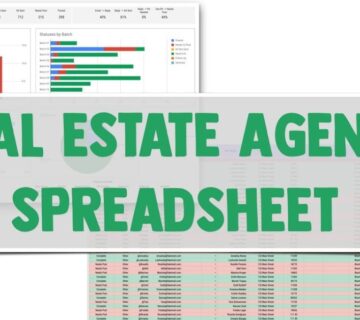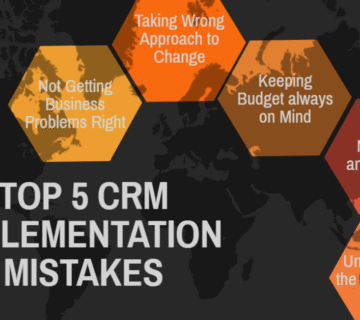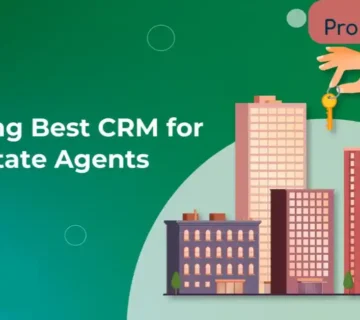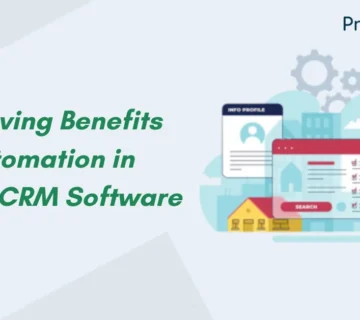Ask any real estate broker what they need more of, and the answer usually comes down to two things: time and better deals. Managing multiple clients, tracking countless property listings, and staying on top of endless follow-ups is overwhelming when you’re working out of spreadsheets or juggling WhatsApp chats. This is where the conversation about Real Estate CRM ROI becomes important.
A good CRM is no longer just “nice to have”: it’s a tool that directly impacts your bottom line. It saves hours of manual work, helps you close deals faster, and builds stronger client relationships. In this blog, we’ll break down how brokers can calculate the return on investment (ROI) of a CRM, why it matters, and how solutions like Property CRM can change the game for realtors in Dubai and beyond.
Why ROI Matters in Real Estate CRM
Defining ROI for Brokers
Return on investment in real estate software isn’t just about the money you spend. It’s about the time saved, the deals closed, and the opportunities created.
Shifting from Costs to Value
Many brokers hesitate to invest in new software because they see it as an added expense. But in reality, CRM tools deliver measurable value by streamlining brokerage workflows, reducing errors, and enhancing client management.
Long-Term Business Growth
The real ROI shows up over time: higher lead conversion rates, improved deal management, and sustained profitability. With the right CRM, brokers are not just saving time, they’re setting the stage for business growth.
Time-Saving Benefits of CRM
One of the biggest advantages of CRM efficiency for realtors is how much time it saves.
Automating Repetitive Tasks
Follow-ups, reminders, and data entry are time sinks for brokers. A CRM automates these tasks, ensuring you spend more time with clients and less time chasing paperwork.
Centralized Client Information
No more digging through emails or scattered notes. With a CRM, client details, property preferences, and conversation history are all in one place. This makes it easier to pick up conversations seamlessly and move deals forward.
Faster Deal Closures
By streamlining communication and giving real-time updates on property availability, CRMs help brokers shorten the sales cycle. Saving even a few days per deal directly boosts revenue.
Want to see these time-saving features in action? Explore how Property CRM supports brokers with automated workflows and real-time dashboards tailored for the Dubai property market.
Boosting Broker Productivity
Smarter Lead Management
Every broker knows leads are lifelines. A CRM ensures no lead slips through the cracks by tracking activity and nurturing relationships. This improves lead conversion and maximizes ROI.
Team Collaboration
For brokerages with multiple agents, CRMs provide a shared platform to track deals, assign tasks, and update progress. This transparency means no duplicate work and smoother teamwork.
Performance Tracking
With dashboards and KPI tracking, brokers can instantly see which deals are moving and which need attention. Real-time insights help optimize strategy and focus on high-value prospects.
Improving Client Management
Personalized Communication
Clients want to feel valued. A CRM helps brokers tailor communication by tracking preferences and past interactions, leading to more trust and stronger client relationships.
Multi-Channel Engagement
From email campaigns to WhatsApp messages, CRMs integrate communication across multiple platforms. Brokers can respond faster and more consistently.
Long-Term Client Retention
Satisfied clients often turn into repeat buyers or referral sources. With better organization and communication, brokers create a cycle of trust that boosts long-term ROI.
Data-Driven Sales Insights
Real-Time Reporting
Gone are the days of guessing which strategies are working. With CRM analytics, brokers can see which campaigns generate leads, which agents close deals faster, and where bottlenecks occur.
Predictive Insights
Some CRMs use AI-driven tools to forecast which leads are most likely to convert. This allows brokers to focus energy on the highest-potential opportunities.
Strategic Decision-Making
By analyzing sales trends and client behavior, brokers can refine strategies, optimize resources, and grow their market share.
Calculating the ROI of a Real Estate CRM
So how do you measure ROI in real terms? Let’s break it down.
| Metric | Without CRM | With CRM | ROI Impact |
| Lead Follow-Ups | Manual, often delayed | Automated reminders | Faster response times |
| Client Data | Scattered across files | Centralized and updated | Improved client management |
| Sales Cycle | Longer due to miscommunication | Shorter with clear tracking | Faster deal closures |
| Team Productivity | Duplicate efforts | Streamlined workflows | Higher efficiency |
| Revenue | Limited by lost leads | Increased from better conversions | Direct profit growth |
By comparing these factors, it becomes clear that even a modest investment in CRM software pays off quickly in both time and revenue.
Competitive Advantage in a Fast Market
In places like Dubai, where property sales move quickly, being slow means losing deals. A CRM gives brokers the edge with:
- Immediate lead response through automation
- Better collaboration between team members
- Scalable systems that grow with the business
In short, brokers with CRMs consistently outperform those still relying on spreadsheets or manual tracking.
Conclusion
The question isn’t whether you can afford to invest in a CRM, it’s whether you can afford not to. The Real Estate CRM ROI is clear: more time saved, more deals closed, and better client relationships. Brokers who adopt tools like Property CRM gain measurable advantages in productivity, communication, and profitability.
Ready to see how a CRM can transform your brokerage? Contact Property CRM today to book a demo and start closing more deals with less effort.
Frequently Asked Questions
What does ROI mean in Real Estate CRM?
It measures the value brokers gain, time saved, deals closed, and profits earned, compared to the cost of the CRM.
How much time can brokers save with CRM?
Brokers save hours each week by automating follow-ups, managing data in one place, and reducing manual errors.
Does a CRM help small brokerages too?
Yes, even solo brokers benefit from better organization, faster communication, and improved lead conversion.
Can CRM increase property sales?
Absolutely. With streamlined workflows and better client engagement, CRMs directly contribute to higher sales.
Is CRM difficult to set up?
Most modern CRMs, including Property CRM, offer user-friendly setup, tutorials, and migration support.
How soon can brokers see ROI?
Many brokers see results within the first few months as workflows become smoother and deals close faster.
What features matter most in calculating ROI?
Automation, client management, sales insights, and scalability are the key features that boost ROI.
 +971 457 13703
+971 457 13703






No comment